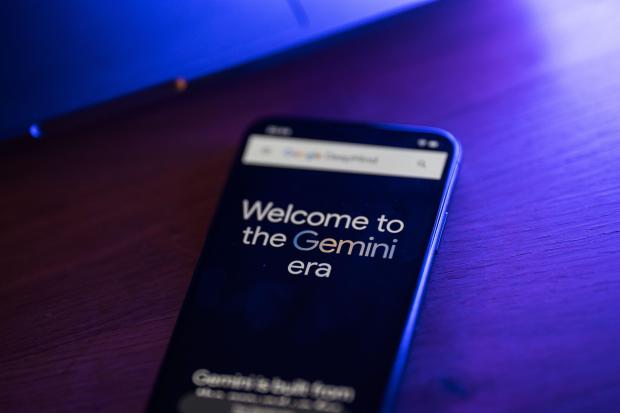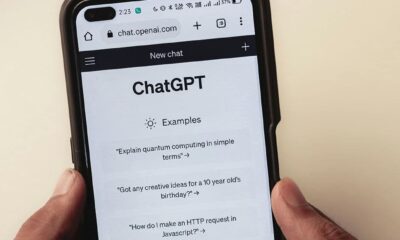Science
Google Launches Gemini: A New Era for AI Chatbots

Google has officially launched its new generative artificial intelligence chatbot, Gemini, in February 2024. This enhanced AI model, which succeeds the previous Bard system, operates on a large language model (LLM) of the same name introduced in December 2023. Currently, Gemini is available in over 40 languages and across more than 200 countries. During the recent 2024 Google I/O keynote, the company announced its integration into various Google products, including Android, Chrome, Photos, and Workspace.
How to Access and Use Gemini
Users can easily access Gemini on their mobile devices via a free app available for both Android and iOS. To set Gemini as the default digital assistant, Android users can activate it by saying “Hey Google” or by long-pressing the power button. After downloading the app, users can either type their requests into a text box or use the microphone for voice commands. A notable feature is the Live mode, designed for a more interactive experience that mimics natural conversation.
For those using computers, Gemini can also be accessed through its official website. To enhance interaction, providing specific details in prompts can lead to better responses. Users can instruct Gemini to adopt various personas, such as a fitness coach or a journalist, allowing for tailored interactions. If the initial responses do not meet expectations, users can request adjustments, such as asking Gemini to “make it sound more professional.”
Capabilities of Gemini
Gemini boasts a wide range of functionalities. According to the chatbot itself, it excels at brainstorming ideas, clarifying concepts, and performing tasks like meeting recaps and research assistance. Some of its specific capabilities include text generation, proofreading, information retrieval, summarisation, and language translation.
By default, users engage with the Gemini 2.5 Flash model, which is optimised for speed. For more complex queries, users can switch to the Gemini 2.5 Pro model for enhanced reasoning and accuracy.
A key feature of Gemini is its ability to perform real-time searches using Google Search. Unlike static AI models limited to historical data, Gemini can assess when to access current information from the internet. This enables the chatbot to provide timely answers regarding current events and recent developments, complete with citations and links for further exploration.
Additionally, with the introduction of Imagen 3 in October 2024, Gemini can now generate images. This service is available to all users free of charge, subject to daily limits based on system demand and prompt complexity.
As a Google product, Gemini has direct access to information about YouTube videos, although this feature is presently restricted to developers using the Gemini API.
Pricing and Future Developments
The standard version of Gemini is free for signed-in users, offering unlimited access to the 2.5 Flash model and limited access to the 2.5 Pro model. Users can also generate images with Imagen 4 and engage in detailed research through the Deep Research feature. A one-month free trial for the AI Pro plan is also available, which includes additional features such as video generation and coding assistance.
In the UK, the AI Pro plan will cost £18.99 per month after the trial period, while the AI Ultra plan starts at £119.99 per month, providing access to the most advanced reasoning model, Gemini 2.5 Deep Think.
Looking ahead, Google announced plans to replace its long-standing Google Assistant with Gemini by March 2025. Currently, users can switch between the two assistants, but the classic Google Assistant will be phased out by the end of 2025. This transition will extend to various devices including tablets, smartwatches, and home assistants.
Gemini’s Role in Smart Home Devices
While most Google Home devices currently operate using Google Assistant, Gemini is set to take its place. On August 20, Google revealed the upcoming launch of Gemini for its range of smart home devices. Anish Kattukaran, Chief Product Officer at Google Home & Nest, described it as “an all-new voice assistant for the next generation of help at home,” emphasising its ability to manage complex tasks across multiple devices.
Users will still initiate commands with “Hey Google,” but Gemini will enable more intricate interactions, such as controlling multiple devices simultaneously or managing schedules with ease. During the testing phase, Gemini for Home will be available to a limited number of users, with wider rollout expected in October.
Comparing Gemini and ChatGPT
Both Gemini and ChatGPT are advanced AI chatbots operating on large language models; however, they differ significantly in their design and capabilities. While ChatGPT, based on the Generative Pre-trained Transformer (GPT), primarily focuses on text, Gemini has been developed as a multimodal system from the outset. This positions Gemini to excel in handling images, video, and audio content.
In text generation, some users find ChatGPT provides more nuanced responses, particularly for creative writing. The context window is another important distinction. ChatGPT’s latest model offers a context window of up to 128,000 tokens for paid users, while Gemini supports an impressive one-million token context window, making it particularly effective for tasks requiring extensive memory retention.
With deep integration into the Google ecosystem, Gemini is likely to be a preferred choice for users in office and workspace environments, especially as Google continues to enhance its capabilities.
-

 World3 days ago
World3 days agoCoronation Street’s Shocking Murder Twist Reveals Family Secrets
-

 Entertainment4 months ago
Entertainment4 months agoKate Garraway Sells £2 Million Home Amid Financial Struggles
-

 Entertainment3 months ago
Entertainment3 months agoAnn Ming Reflects on ITV’s ‘I Fought the Law’ Drama
-

 Health3 months ago
Health3 months agoKatie Price Faces New Health Concerns After Cancer Symptoms Resurface
-

 Entertainment3 weeks ago
Entertainment3 weeks agoCoronation Street Fans React as Todd Faces Heartbreaking Choice
-

 World4 weeks ago
World4 weeks agoBailey Announces Heartbreaking Split from Rebecca After Reunion
-

 Entertainment6 days ago
Entertainment6 days agoTwo Stars Evicted from I’m A Celebrity Just Days Before Finale
-

 World6 days ago
World6 days agoKevin Sinfield Exceeds Fundraising Goal Ahead of Final Marathons
-

 Entertainment3 months ago
Entertainment3 months agoCoronation Street’s Carl Webster Faces Trouble with New Affairs
-

 Entertainment3 months ago
Entertainment3 months agoWhere is Tinder Swindler Simon Leviev? Latest Updates Revealed
-

 Entertainment4 months ago
Entertainment4 months agoMarkiplier Addresses AI Controversy During Livestream Response
-

 Science2 months ago
Science2 months agoBrian Cox Addresses Claims of Alien Probe in 3I/ATLAS Discovery





















